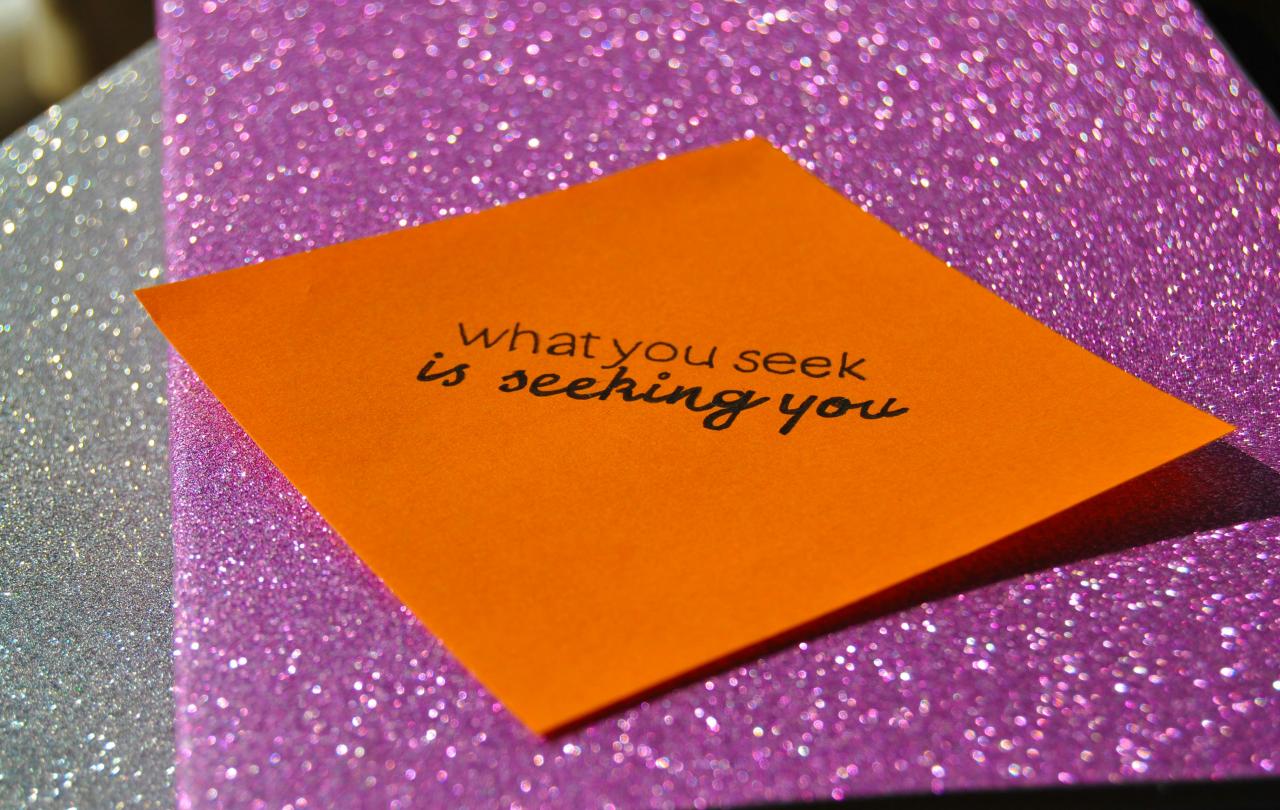
In the twentieth century many people thought that religion was on the way out. As the political scientist Francis Fukuyama put it, it was broadly assumed that “religion would disappear and be replaced solely by secular, scientific rationalism.” But few people now believe this anymore. Fukuyama himself has changed his mind and says that the disappearance of religion “is not going to happen.” But why is religion refusing to disappear?
A core reason for the persistence of faith is that there are questions that everyone asks at one point or another that lead in the direction of religion. Religion, or faith, addresses questions that nobody can escape: Why is there something rather than nothing? Where does it all come from? Is there meaning to this life? And what happens after death? Faith traditions are experts in such ultimate questions. Consider the following examples.
These questions of beginning, of meaning, and of the end, are the questions that religion deals with.
When people experience the beginning of life, they are often caught up in wonder. How can it be that a whole new person is growing inside a woman? Even Friedrich Nietzsche, the great critic of Christianity, who famously declared that “God was dead”, also wrote, “Is there a more sacred state than pregnancy?” There is something deeply moving around the beginning of life. Many who become parents, or in some way experience the beginning of life, are led to wonder: isn’t something more than just biology happening here, something deeper? A new life, a whole new person – and our love for that new person – where does all of that come from?
Another group of questions that most people will face at some point in their lives revolves around meaning. What’s the point of growing up, a teenager might ask? What’s the point of my work, we may ask later on. Especially when we face frustrations, failures, challenges we might wonder what difference we are making to the world. Would anyone miss me if I was not here? Will anyone remember me if I die?
Finally, we all at some point come in contact with death. Even if we are spared the pain of friends dying young, it is the natural course of the world that our grandparents and our parents will one day die. What do we do in the face of such loss? It is hard not to ask: Where is my loved one now? And is there hope of seeing them again one day?
These are the kinds of questions that nobody can entirely avoid in their lives: they never fail to arise and press themselves upon our consciousness. Yet these questions of beginning, of meaning, and of the end, are precisely the questions that religion deals with. And here lies one important answer to why faith won’t just go away: Because scientific rationalism cannot really address them.
Faith offers a space in which people can ponder the ultimate questions and find other people who want to do it with them.
To be sure, secular scientific rationalism does offer some answers as to how life begins – we know the biology of it all astonishingly well. And yet, biology is not everything, and in fact, it is not the biological aspects of it all that touch us. The wonder, the hope, the love that we experience when we are faced with the beginning of life is more than what can be rationally or scientifically accounted for.
Similarly, scientific rationalism is not well equipped to answer questions of meaning. Science is great at answering how something works or how it should be done, but why-questions fall into a different category. Many chatbots, when asked about the meaning of life, will answer “42” - which is a reference to the comic sci-fi series “the Hitchhiker’s Guide to the Galaxy” and we intuitively understand that this answer is nonsensical. It is funny precisely because it is nonsensical.
And again, around the end of life: Scientific rationalism cannot and will not, based on its methods and approaches, say anything about the afterlife.
So, the questions of beginning, meaning and end cannot be answered solely by scientific rationalism. And yet they come up in all of our lives. Right here lies an important reason why faith has not gone away. Faith deals with just these questions. It is good at dealing with them – they are the core domain of faith.
Faith offers answers to questions of beginning, meaning and end, but just as importantly, it offers a community in which such questions can be addressed and discussed. It offers a space in which people can ponder the ultimate questions and find other people who want to do it with them, perhaps showing them ways in which they can find answers. Different faiths and different expressions of faiths do this very differently: organised religions do it differently to loose association of the “spiritual but not religious”, but in all cases, it is faith – broadly understood – that addresses and deals with the questions that niggle away and are not otherwise addressed. Faith won’t disappear, because faith’s questions won’t disappear.
But why does this need saying? Is it not obvious that religion is about ultimate questions that concern everyone?
The problem is that modern Western life is full of opportunities to distract us from these questions. We are wealthy, comfortable, bombarded with entertainment, and often very busy with careers and children as well. All these things help us to repress the deeper questions about the origin and purpose of our existence.
Many people treat the question of life’s meaning like a school or University essay that they can procrastinate from indefinitely: “One day I’d like to figure it out: what it’s all for and where it’s all going: but today there’s another episode on Netflix, Instagram to browse, or tennis on the TV.” The entertainment industry offers alluring enticements to money, sex, fame or success. Wealth is particularly useful because it helps us get what we want, when we want it, and prevents us from facing the harsher realities of life. Making ourselves busy is easy, and we can leave ourselves no time for deep reflection on the bigger questions. All of this adds up to what we might call the “narcotic of everyday life” – the ways in which daily life and society act as a drug to cloud our vision, confuse our thinking, and prevent us from clearly facing up to the things in life that matter most.
The “narcotic of everyday life” – the ways in which daily life and society act as a drug to cloud our vision, confuse our thinking, and prevent us from clearly facing up to the things in life that matter most.
But the problem is that even ordinary everyday life is lived according to (at least provisional) answers to those big questions. Every daily decision we make displays our values, what we think matters. If we work late instead of coming home to play with the children – if we fly to New Zealand for a vacation, or buy beef, massively increasing our carbon footprint and contributing to climate change – we are making choices that have an impact on the planet. All our choices are based on values which reveal our beliefs about what makes life worth living and what we want out of life. You cannot be an agnostic. Your life displays belief in one thing or another. Consider one stark example. A pregnant teenage girl simply cannot be agnostic about abortion for very long. She has only two options: abort, or give birth. The choice she makes will be a practical consequence of her beliefs and value judgments. There is no agnosticism, no “not answering” the question.
Like every religious tradition, Christianity calls us to live lives that are rooted in things of ultimate and lasting value, rather than superficial or self-centred concerns. It challenges us to fight against the narcotic of everyday life by constantly drawing our attention back to the things that most matter. Through worship, Bible reading, and prayer, it incessantly asks us those vital questions: Is it really about making money? Is it about getting promoted? What are our ultimate values and how do we show them in our lives? The real power of secularism is not that it offers alternative answers to these questions but that it distracts from the question. All we need to do is un-distract.
Christianity is not just a set of easy answers to these questions. It is a way, a journey towards the truth. To be a Christian means to belong to a community that trusts what Jesus has revealed about our life’s origin, meaning and end. In that community there are some implicit answers to get us started. We live in the belief that life is meaningful, that selfishness and personal pleasure are not the most important thing. There’s plenty of room for debate and discussion, but let’s at least start talking about the things that matter.






